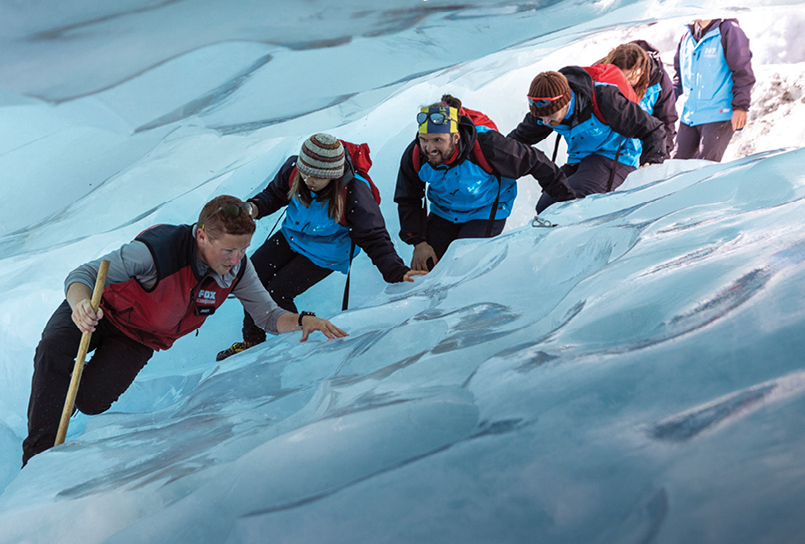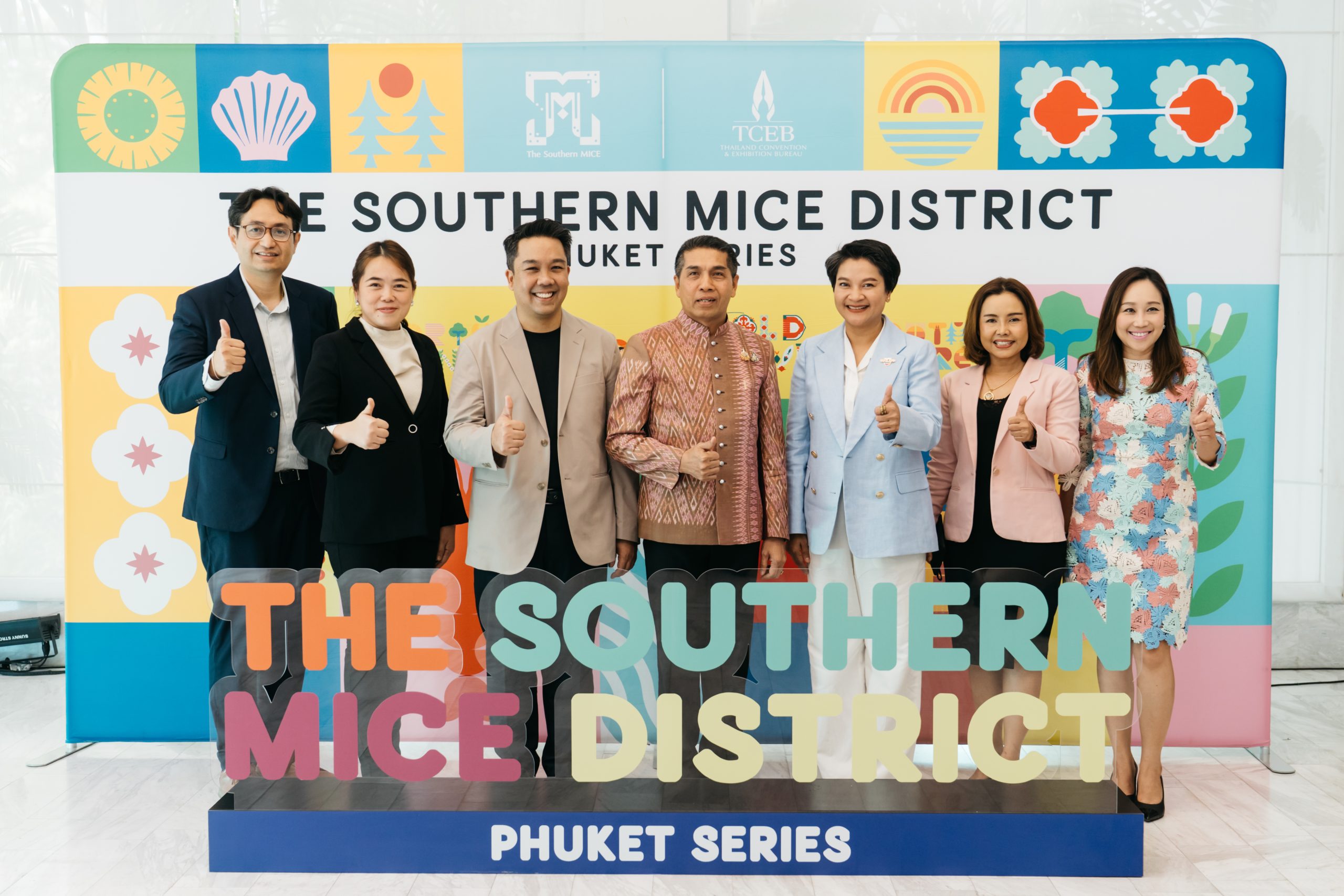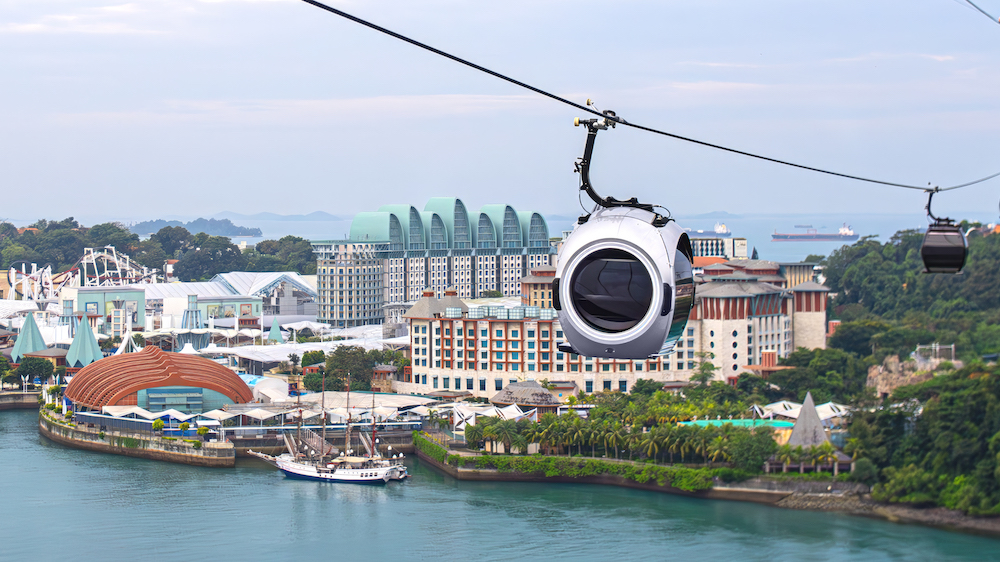Korea provides organisers with a colourful palette, to design their events around, but until recently the country was rarely on planners’ shortlists.
However, by building on two major global sporting events, the 1988 Seoul Olympics and the 2002 World Cup, the country showed the world that its expertise and infrastructure could line up among the best anywhere.
This renewed sense of self confidence has brimmed over into the congress sector, with Korea’s high-tech image being particularly attractive to scientific and medical associations. Such gatherings have propelled Korea up the rankings compiled by the meetings industry and there is obvious pride that finally Korea has made its mark.
One of the key reasons for this is the knowledge that Korea has both the private-sector expertise, with skilled professionals among destination management companies and professional conference organisers.

The country’s portfolio of hotels provide accommodation and venues to suit every need and budget. Major international brands exist in all the major centres of the country, providing top-class service combined with from-the-heart hospitality that is truly Korean.
The Korea Convention Bureau (KCB) of the Korea Tourism Organization should be the first port-of-call for any event organiser, considering the country for their meeting or incentive. The KCB offers expert advice and access to a wide-reaching network of industry professionals. Depending on the size of your event, the KCB can help with a number of value-added elements, such as airport welcome, provision of VIP speakers and the like. The KCB can help organise site inspections and familiarisation tours, and assist in putting together post- or pre conference tours and spouse programmes.
Most of the major cities also have convention bureaus, providing local knowledge and are able to point organisers in the right direction to find the necessary expertise to hold their events.
Another advantage is geography. Korea’s location in northeast Asia is ideal, located close to mainland China, Taiwan, Hong Kong, Japan, Russia and just a few hours’ flight from Southeast Asia.
Aside from the world-class Incheon Airport near Seoul, Korea also has direct international air access into Busan and Jeju. Internal flights across all Korean destinations are regular and easy to organise and there is also high-speed rail networks across the country. There is no part of the Asia-Pacific that is not easily connected with Korea.
Yet another factor is the variety of environments. Whether it’s a cutting-edge urban space, tropical beach or a mountain-side retreat, Korea can deliver them all.
A spokesman for destination management company AJU Incentive Tours in Seoul says: “Try to experience every bit of Korea. This country has everything from mountain-hiking, surfing, shopping, farm-stays, skiing, temple stays and preserved natural habitats.
“Korea is where you can experience a distinctive cultural, traditional lifestyle as well as seeing the home of successful global companies. This country has a well developed economy, and at the same time, fully specialised entertainment parks and shopping centres.”
Koreans are proud of their unique culture and few would want to miss out on learning more about this fascinating country,
A visit to the country’s numerous historical relics, seven of which were designated Unesco World Cultural Heritage Sites, will make your journey all the more special. Famous sites include Changdeokgung Palace, Hwaseong Fortress, Seokguram Grotto, Bulguksa Temple, the Tripitaka Koreana woodblocks and their depositories, Jongmyo Royal Ancestral Shrine and Gyeongju Historic Areas.
Lewis Bloom, director of Best of Asia Travel Marketing, says: “For business event planners, it can sometimes be a nightmare to plan an event in another country. In South Korea, there is nothing to worry about. Professional assistance from hotels and convention centres will help to make the event successful and exciting.
“South Korea provides the best accommodation possible in world-class hotels. Those hotels also have Korean traditional rooms and staying in those kinds of specialised rooms, your clients’ experience in Korea will be deeper and much more exciting.”

Capital value
Seoul’s business heart makes it a natural magnet for corporate events. Household names such as Samsung, LG, Daewoo, Hyundai and many others testify to South Korea’s economic growth over the past few decades.
Holding a conference or seminar in Seoul means getting close to the country’s dynamic business community.
Recent years have seen Korea open up to outside cultural influences. While maintaining its strong indigenous identity, international cuisine is widespread and of high quality.
English is increasingly widely spoken and visitors from any part of the globe will find Seoul a welcoming destination.
The city’s infrastructure is world class. The wide range of high-quality hotels and cutting-edge venues is a strong plus for events professionals as their operators can be relied upon to deliver excellent service and support for whatever kind of event you plan to hold in the city.
This private-sector expertise is also backed by the Seoul Convention Bureau, the events arm of the Seoul Tourism Organization.
Samuel Koo, president of the Seoul Tourism Organization, also points out that the city is continually changing. “Seoul is a renaissance city in full gear with urban redevelopment projects underway along city avenues, along the banks of the Han River and the famed Namsan Mountain,” he says.
The natural choice for those holding large-scale conferences and events in the capital has been the COEX conference and exhibition centre in Seoul.
The well-established, accessible venue is surrounded by a huge shopping and entertainment mall and within walking distance of several five-star hotels, including the COEX InterContinental Hotel.
Susan McGregor, international marketing manager of COEX, stresses that the centre is also making substantial efforts to become more environmentally friendly in response to client demand.
“We’re implementing a whole series of measures to save energy and water. COEX is constantly looking at ways of improving our green credentials.”
While Seoul is the centre of the country’s business events, numerous other destinations can provide first-class support for event planners.
Korea offers a number of world-class purpose-built convention centres, such as Kintex on the outskirts of the capital, and in provincial hubs including Bexco in Busan, the International Convention Centre in Jeju as well as centres in the cultural hubs of Gwangju and Daegu.
Busan, a busy port city in the southern tip of the Korean peninsula, is also a popular resort destination and provides both the business and leisure options that business groups love.
Jeju is a resort island off the southern coast combining a great landscape with outdoor activities that can be incorporated into teambuilding programmes or golf courses, where delegates can enjoy a mini-championship or a casual round after the meeting’s business is over.
The AJU Incentives Tour spokesman says: “Nowadays, as part global community, most South Koreans do speak English. South Korea has many bilingual speakers and also has many other facilities where English or another language is adapted and used.
“It is our culture to not to ignore other people who need our help. It has been our tradition for many years to have manners and be polite to others.
“Most foreign tourists see Koreans as kind-hearted and nice people. They may or may not speak English but they are willing to help others, even if it means using body language.”
UP & COMING – DAEGU
Daegu is the third largest city in Korea with 2.5 million inhabitants, located about 300km south of Seoul.
It is one of the most historic cities in the country, with the first mention of Daegu in written records being in 261 AD.
Traditionally, Buddhism has been strong in the region and there are many temples to visit. Confucianism has also been strong with a large academy based in the city.
Nearby tourist attractions include Haeinsa – a Buddhist temple that houses the Tripitaka Koreana (a woodblock edition of the Tripitaka – one of the world’s oldest complete collections of Buddhist scriptures). Haeinsa is located in Gayasan National Park. Gyeongju, the capital of the ancient kingdom of Silla, is located southeast of Daegu.
Aside from its cultural attractions, Daegu also has business credentials.
In recent years, it has developed into an industrial and energy centre. It has also a reputation as a textile-producing city, and hosts an extensive electronics manufacturing industry. Furthermore, there is EXCO, a state-of-the-art convention and exhibition facility, it is entering a phase of extensive expansion that will be completed in 2011. EXCO will then comprise more than 20,000sqm of conference and exhibition space, with cutting-edge technology and facilities. A new five-star hotel will make up part of the immediate complex, allowing delegates to reach the congress and exhibition in minutes. For more details contact the Daegu Convention and Visitors Bureau at admincvb@daegucvb.com or visit www.daegucvb.com
GUN BAE – CHEERS!
When in Korea, make sure your group doesn’t miss out on some of Asia’s most interesting drinks
Koreans are a sociable people and love to lubricate their gatherings with alcohol. Korean beer brands, such as Hite and OB, can be found everywhere alongside international brands. Wine and Western spirits have also made their mark.
But to give your group a true taste of Korea, you should request your food and beverage suppliers to ensure that during at least some parts of your programme, your group has the opportunity to savour some truly indigenous alcholic drinks. The most popular are makgeolli, soju
and cheongju.
Makgeolli is the oldest Korean alcohol. Archaeological evidence suggests a very similar drink was being made on the Korean peninsula 2000 years ago.
It is made with glutinous rice, non-glutinous rice, barley and flour. The ingredients are steamed and then dried. The result is then mixed with yeast and water and left to ferment naturally. Then, the wine is roughly strained using a steaming rack. The result is a drink that looks like a milky soup and is usually served in a bowl.
Its fans like to point out that Makgeolli has a relatively low percentage of alcohol at six percent and even claim health benefits from the drink. It is said that the organic acids in Makgeolli helps digestion and increases blood circulation and the person’s metabolism. The yeast prevents the alcohol from causing high blood pressure and heart problems.
A much stronger and more recent drink is soju. This was introduced into Korea by the Mongol invaders around the 14th century. Its name is derived from the Chinese for “burned alcohol”.
This clear drink is hugely popular, with an estimated 3 billion bottles being consumed every year. Though traditionally made from rice, other starches such as potato, wheat and barley are used as supplements. The result is a very strong brew, usually an average of 20 percent alcohol content but up to 45 percent is possible.
Cheongju is a clear liquor and similar in taste to Japanese sake. Korean rice wines are also regaining popularity and there are many types and local variants such as yakju, made from refined steamed rice, cheongju, which is clear and similar to Japanese sake. Added to this list are fruit and flower wines.
THE PROFESSIONALS
AJU Incentive Tours
email: ajuincentive@netsgo.com
Bosuk Tours
email: bosuktours@hotmail.com
Exodus DMC
email: exodusdmc@koreabound.com
Holiday Planners
email: operation@holidayplanners.co.kr
Event Group We
email: eventwe@eventwe.com
CASE STUDY
Incheon on show
Tourism professionals from Asia gathered in Incheon, Korea, earlier this year to network at the 38th SKAL Asia Congress.
The event took place at the Hyatt Regency Incheon and Songdo Convensia in an area that has been targeted by the South Korean government to become a major business and logistics hub on the northern outskirts of Seoul.
Adam Simkins, general manager of the Hyatt Regency Incheon, said: “Incheon is a rapidly developing part of Korea. We’re planning to add an entirely new wing to the hotel and vastly increase our meeting and conference facilities. Business people can fly into the airport, have a day’s meetings and fly out again, without having to make the journey into Seoul.”
Incheon is also an area of natural beauty and its access to islands and beaches draws Seoulites out on weekends to enjoy nature and escape the city.
This combination of business and leisure made Incheon an interesting choice to host some of the region’s leading travel industry figures.
SKAL, a Scandinavian word meaning “happiness, long life, good health and friendship”, has 26,000 members from the hospitality and the travel sectors in 500 clubs across five continents.
Attending the congress was the president of SKAL International, Hulya Aslantas; president of SKAL Asia, Earl Wieman; as well as the president of SKAL Korea and general manager of the Incheon property the Park Hyatt Seoul, Adrian Slater.
Hyatt Regency Incheon laid on special events that highlighted Korea’s unique culture and charm, including Nanta and Bibimbab performances, and the Hanbok Fashion show.
Nanta is a unique non-verbal kitchen-based show based on mesmerising rhythmic chopping that builds into a crescendo of choreographed energy. The high-octane show is a popular element of corporate events.
Another local twist was the Hanbok fashion show dubbed “Indulge in Korea”, featuring traditional and contemporary Korean costumes. It was organised by Hanbok Korea, a famous fashion house known for its unique take on the native dress.
During the event, the hotel’s Restaurant 8 showed off a very new and innovative dining experience concept, the Live Market. This is designed to offer diners the chance to shop as if they were in a department store and able to choose the items they wanted from the interactive live cooking stations in the restaurant.
Hyatt Regency Incheon then presented a unique set-up in the form of a built-in kitchen in the ballroom for the farewell dinner. In this kitchen, the chefs’ movements provided plenty of entertainment for the diners and gave them a great impression. The main benefit of the built-in kitchen was that it enabled the chefs to showcase their live cooking skills.
SKAL’s Wieman concluded: “The Hyatt is some distance from major tourist and shopping sites. Many of our members were disappointed in not being able to see any of the historic and cultural spots in Seoul.”
However, he continued: “In my opinion, the Incheon congress was unparalleled in terms of sponsorship and organisation, with little left to be desired. The Hyatt itself had all the facilities and services we could have wished for.”
ITINERARY
Seoul/Jeju
day 1
Morning and Afternoon: Groups arrive at Seoul’s Incheon Airport and are met by welcome banner with company logo
Check into hotel with refreshing ginseng drink in each room upon arrival
Evening: Welcome cocktails and buffet dinner at hotel
day 2
Morning: Buffet breakfast at hotel
Afternoon: Seoul city tour including Gyeongbokgung Palace, National Museum, and Olympic Stadium
Evening: Dine-around programme in Itaweon; return to hotel
day 3
Morning: Breakfast at hotel, followed by a tour to the DMZ, where the two Korean states meet
Afternoon: Shopping at Namdaemun South Gate Market
Evening: Traditional Korean barbecue dinner at a restaurant in downtown Seoul
day 4
Morning: Breakfast at hotel; early departure for airport. Flight to Jeju with lunch onboard
Afternoon: Check in at hotel and enjoy a relaxing Korean-style spa treatment
Evening: Okdomi (Jeju local fish) dinner at local restaurant
day 5
Full-day Jeju sightseeing tour, including Jeongbang and Chonjiyon Waterfall, Seongsan Ilchulbong Sunrise Peak, Seongeup Folk Village, Manjanggul Cave, Samsonghyol Hole and Tamna
Moksogwon. All meals including breakfast at local restaurants.
Day 6
Morning: Breakfast at hotel, golf or alternative Korean massage treatment
Lunch: En route to the airport at a Korean noodle restaurant
Afternoon: Depart for airport, some delegates may fly directly to their home cities from Jeju, others will transitat Incheon
FAST FACTS
Access
Korean Air and Asiana Airlines have direct flights to Seoul’s Incheon International Airport, linking the Korean capital from virtually any point in the world.
Korean Air offers an airport limousine service that takes visitors to major hotels and destinations around the city. The bus ride to the city takes about 90 minutes. For visitors with connecting domestic flights, the company has shuttle bus services, which take them to Seoul Gimpo Airport in around 60 minutes.
Visas
Citizens of most Asia-Pacific countries do not need visas for trips less than 30 days. Check the Ministry of Foreign Affairs and Trade website at www.mofat.go.kr
Climate
The country has four distinct seasons – spring, summer, autumn and winter. To pack appropriate clothing, check weather temperature before you leave.
Languages
Korean is the official language. English street signs are now common. Today, growing number of young people are proficient in foreign languages, notably English, Chinese and Japanese. Korea has about 2,400 BBB (Before Babel Brigade) volunteers who are fluent in 17 languages and are available on a single telephone number.
Contact
Korea Convention Bureau


